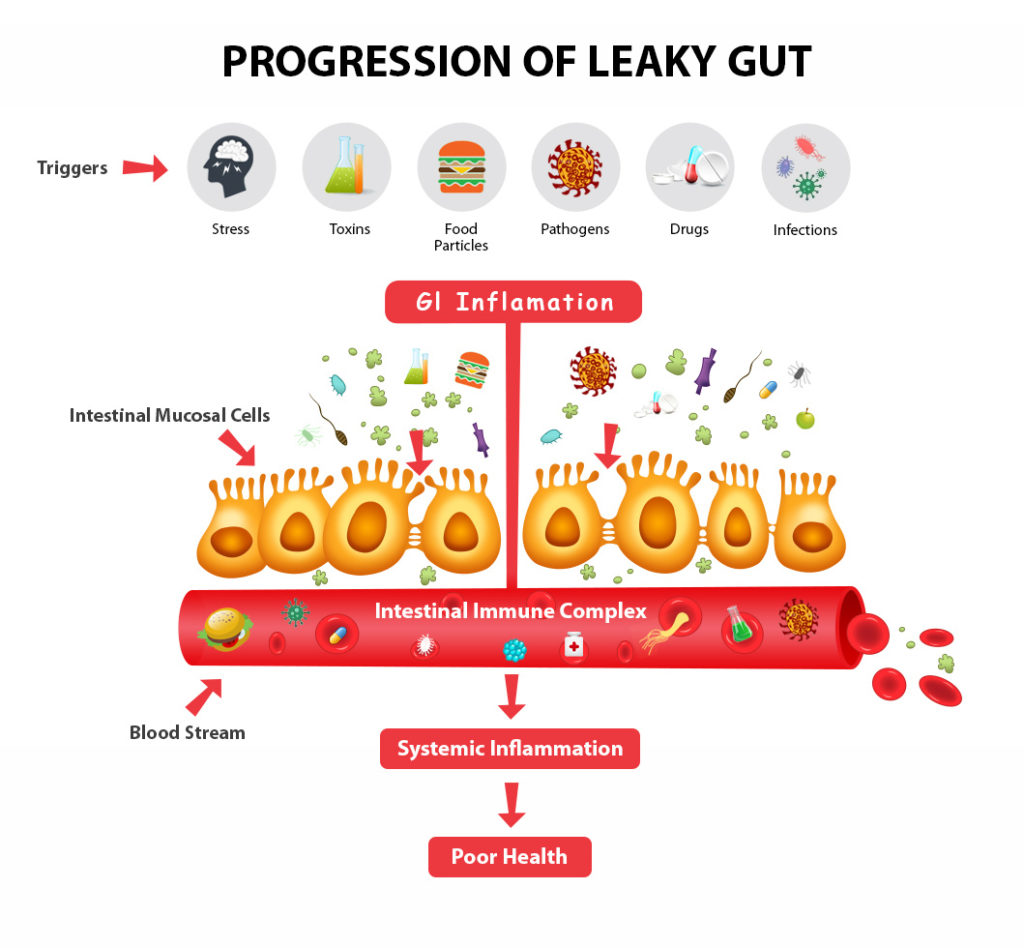What Causes Leaky Gut?
It’s important to note; it’s rarely one trigger that causes leaky gut. It’s an accumulation of factors, over time, that can result in an inflammatory reaction and eventually a leaky gut. These triggers can stimulate specific mechanisms in the body that result in dysfunction of our gut barrier. We’ve discussed many of these mechanisms in great detail in the previous two advanced chapters (*).
Most Common Triggers
- Chronic Stress
- Toxins
- Poor Diet
- Infections
- Drugs
- Bacterial imbalances
- Alcohol
- Pancreatic Insufficiency

The Root Cause of Leaky Gut
The major players that cause leaky gut are chronic inflammation, oxidative stress, and dysbiosis. They all play a role in impairing the function of the gut barrier. The triggers listed above can eventually cause an immune reaction resulting in systemic inflammation and poor health. You will see these mechanisms discussed often in this section of the guidebook. Let’s briefly breakdown these mechanisms.
Chronic Inflammation
Chronic inflammation damages the tight junctions and contributes to the development of leaky gut. Inflammation increases the production of pro-inflammatory cytokines, such as tumor necrosis factor-alpha (TNF-alpha) and interleukin-6 (IL-6), which can disrupt tight junctions by altering their protein structure and function. This disruption results in increased gut permeability, allowing harmful substances like toxins and pathogens to enter the bloodstream.
Oxidative Stress
Oxidative stress can damage the tight junctions by increasing the production of reactive oxygen species (ROS). Oxidative stress occurs when there is an imbalance between the production of ROS and the body’s ability to neutralize them with antioxidants. Excessive levels of ROS can damage cellular components, including lipids, proteins, and DNA. In the gut, oxidative stress can damage the tight junctions by oxidizing the lipids in the cell membrane and altering the production of tight junction proteins.
Dysbiosis
Review: Dysbiosis refers to an imbalance or disruption of the normal microbial community within the gut, which can negatively impact overall health.
Dysbiosis can alter the production of tight junction proteins and increase the production of lipopolysaccharides (LPS), which are toxins produced by gram-negative bacteria. LPS can damage the tight junctions by increasing the production of pro-inflammatory cytokines, leading to increased intestinal permeability.


